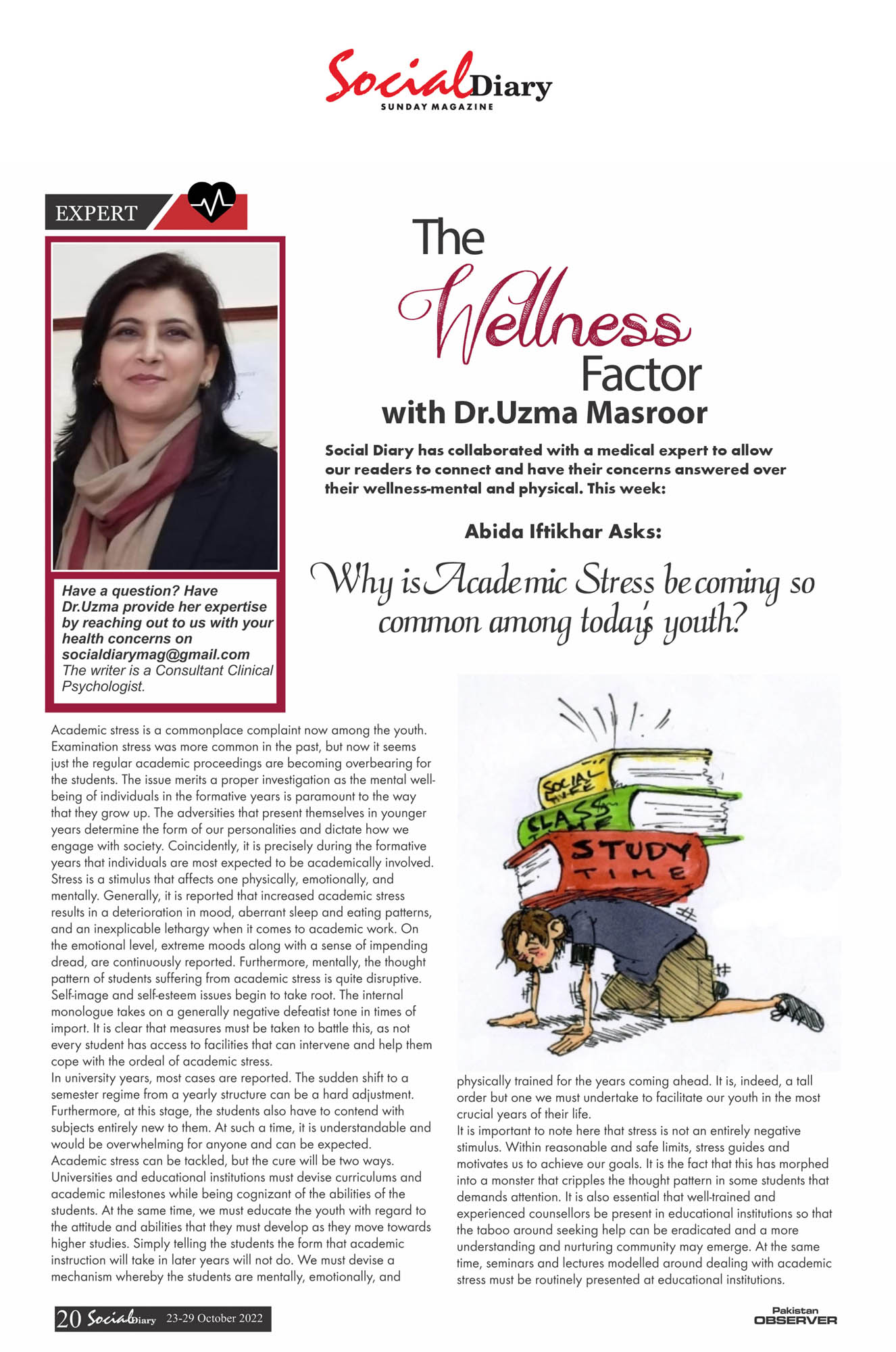Abida Iftikhar Asks:
Why is Academic Stress becoming so common among today’s youth?
Have a question? Have Dr.Uzma provide her expertise by reaching out to us with your health concerns on socialdiarymag@gmail.com
The writer is a Consultant Clinical Psychologist.
Academic stress is a commonplace complaint now among the youth. Examination stress was more common in the past, but now it seems just the regular academic proceedings are becoming overbearing for the students. The issue merits a proper investigation as the mental well-being of individuals in the formative years is paramount to the way that they grow up. The adversities that present themselves in younger years determine the form of our personalities and dictate how we engage with society. Coincidently, it is precisely during the formative years that individuals are most expected to be academically involved.
Stress is a stimulus that affects one physically, emotionally, and mentally. Generally, it is reported that increased academic stress results in a deterioration in mood, aberrant sleep and eating patterns, and an inexplicable lethargy when it comes to academic work. On the emotional level, extreme moods along with a sense of impending dread, are continuously reported. Furthermore, mentally, the thought pattern of students suffering from academic stress is quite disruptive. Self-image and self-esteem issues begin to take root. The internal monologue takes on a generally negative defeatist tone in times of import. It is clear that measures must be taken to battle this, as not every student has access to facilities that can intervene and help them cope with the ordeal of academic stress.
In university years, most cases are reported. The sudden shift to a semester regime from a yearly structure can be a hard adjustment. Furthermore, at this stage, the students also have to contend with subjects entirely new to them. At such a time, it is understandable and would be overwhelming for anyone and can be expected.
Academic stress can be tackled, but the cure will be two ways. Universities and educational institutions must devise curriculums and academic milestones while being cognizant of the abilities of the students. At the same time, we must educate the youth with regard to the attitude and abilities that they must develop as they move towards higher studies. Simply telling the students the form that academic instruction will take in later years will not do. We must devise a mechanism whereby the students are mentally, emotionally, and physically trained for the years coming ahead. It is, indeed, a tall order but one we must undertake to facilitate our youth in the most crucial years of their life.
It is important to note here that stress is not an entirely negative stimulus. Within reasonable and safe limits, stress guides and motivates us to achieve our goals. It is the fact that this has morphed into a monster that cripples the thought pattern in some students that demands attention. It is also essential that well-trained and experienced counsellors be present in educational institutions so that the taboo around seeking help can be eradicated and a more understanding and nurturing community may emerge. At the same time, seminars and lectures modelled around dealing with academic stress must be routinely presented at educational institutions.
























